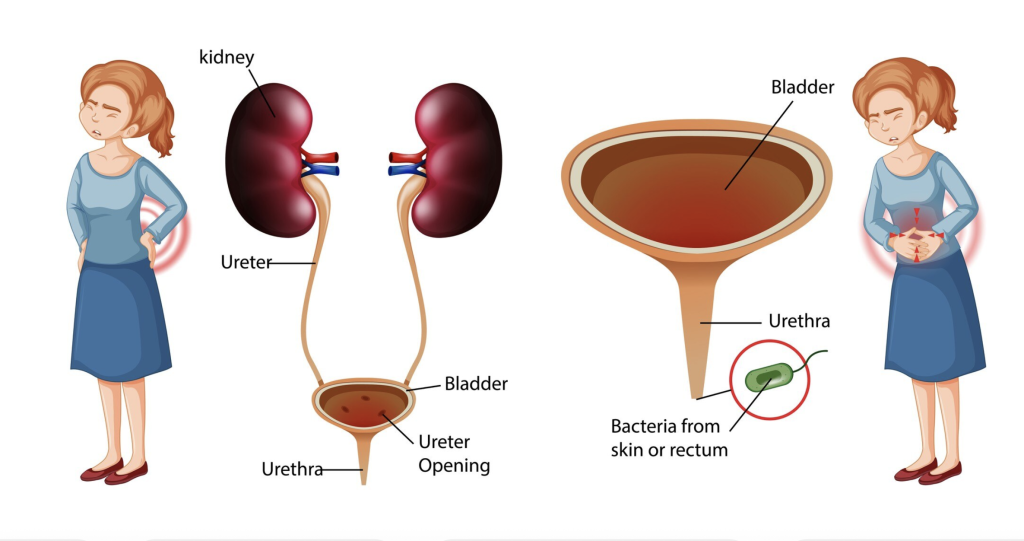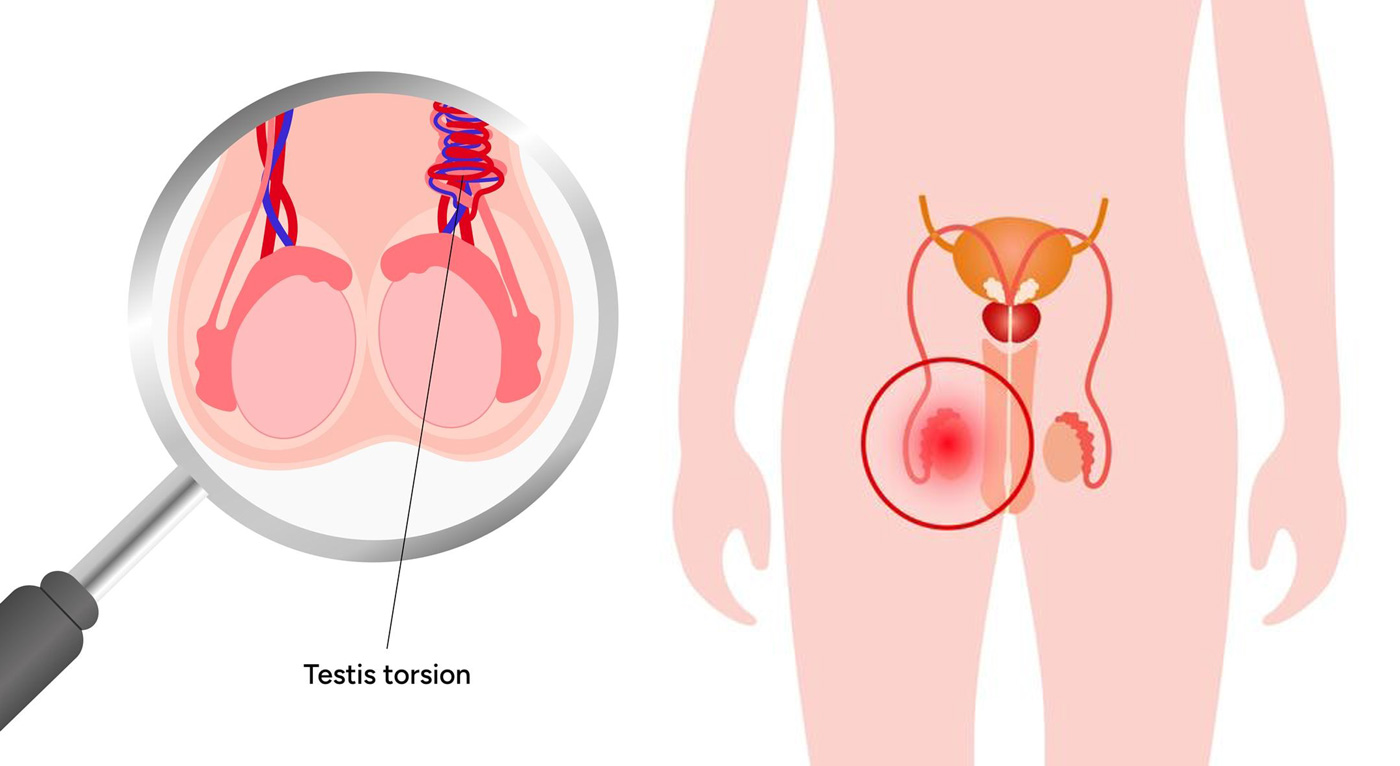What is a urinary tract infection (UTI)?
A urinary tract infection (UTI) involves bacteria entering the urinary system and leading to an inflammatory response. Most often, this is via the urethra and can involve the bladder (cystitis), the kidneys (pyelonephritis), or occasionally the prostate or urethra.
What are the symptoms?
Common signs include:
- Burning sensation when urinating
- Needing to urinate frequently, with small volumes passed (pollakiuria)
- Cloudy, dark, or even bloody urine
- Abdominal or back pain (especially with involvement of the kidneys)
- Sometimes, general discomfort or fever
Who is at risk?
- Women are more commonly affected, because of a shortened urethra and its close location to the vagina and anus.
- Other risk factors include frequent sexual contact, being overweight, diabetes, pregnancy, or having a compromised immune system.
Individuals who have catheters for a long period or anatomical urinary tract abnormalities are also at greater risk
How do I prevent it?
- Hydration: Consume 1.5–2 liters of fluid a day to flush the urinary tract
- Post-intercourse urination: Helps flush out bacteria
- Diet & probiotics: Cranberries and fermented milk products could be beneficial
- Gentle hygiene: Don’t over-clean – maintain natural balance
- Weight control: Being overweight markedly raises risk
- Recurrent infections: D-mannose, vaccine, or a one-dose antibiotic after sex can be useful
How is a UTI treated?
- Recurrent uncomplicated bladder infections (in young healthy women): May be efficiently treated with short courses of antibiotics (for example, fosfomycin, nitrofurantoin, pivmecillinam) – some mild infections can be resolved without an antibiotic
- Kidney infections: Need other antibiotics (ciprofloxacin or cephalosporins) for 10–14 days
- During pregnancy: Amoxicillin, cephalosporins, or fosfomycin, specialized antibiotics, are regarded
- Complex UTIs (for example, with catheters, anatomical problems): Require focused diagnostics (for example, urine culture) and longer treatments, possibly with surgery
When should you visit a doctor?
- Fever or back pain → kidney involvement is a possibility
- If you see blood in your urine
- Should symptoms persist for more than a few days or recur regularly
- While you are pregnant, or have a compromised immune system
- If you have a catheter or a known urinary tract problem
Key Takeaway
UTIs are frequent but typically easy to manage. Be on guard for warning symptoms such as burning, a frequent need to urinate, or seeing blood in your urine. Drink lots of fluids and call your urologist or general physician if symptoms continue or get worse. Preventive measures are particularly useful for those with regular infections.
This text is for informational purposes only. For a personal diagnosis or treatment, please consult your doctor





